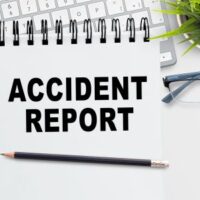Black Box Technologies Used in Criminal Prosecutions

Law enforcement relies more and more on artificial intelligence (AI) in making determinations related to investigating, charging, sentencing, and even releasing offenders across the country. Now more than ever, Artificial Intelligence (AI) algorithms have become extremely intricate and their passageways are enigmatic. That means opaque technologies, otherwise known as black boxes, are often at the root of criminal convictions.
Impacting Opinion
Technical algorithms are used to decode facial recognition, identify people when multiple peoples’ DNA are mixed up, and even conduct risk assessments related to recidivism chances. It’s a complicated science that is truly not comprehended by most people, but that nevertheless has a tremendous influence on the way individuals think about evidence both in and outside of a court of law. Judges, juries, investigators, and policymakers all rely very heavily on the conclusions produced by black box technologies. This can be an issue because that reliance is founded on secretive and complex science that can easily be misunderstood, and is even categorically wrong at times.
Rights Versus Secrets
These black box AI technologies have developed so quickly that the legal system has been unable to keep up with necessary regulations in order to protect the rights of individuals pitted against the secretive algorithms. The technologies are confidential, sometimes by design and sometimes due to corporate guarding of proprietary material. When civil rights violations are alleged, it has been nearly impossible to make a case so far, simply because the technology is so opaque that it’s tough to know how to take a stand against it. That fact, too, has made regulation difficult to date.
Protecting the Secrets
Judges often trust these secretive technologies, and actually protect them from closer examination. In one case involving a challenge to DNA technology and a request that independent evaluators review it, the judge denied a defense challenge and inspection request on the grounds that the company would not be able to market its technology if it were more transparent.
Is it Reliable?
According to the corporations who market it run these technologies, they can unequivocally be relied on to reach just and accurate conclusions. But corporations make a lot of money with these programs when they get favorable results, and no one else is allowed to take a closer look at the technologies. So can they really be trusted?
AI explanations don’t always adhere to a model’s calculations, either. In fact, many explainable methods disagree with one another, which means that some of the explanations must certainly be wrong, meaning by extension that all of the conclusions cannot be considered valid. Even so, advocates of the technologies argue that a few mistakes are acceptable when weighed against the accuracy provided in other cases. It’s an interesting argument. But when do we know a mistake has occurred and when can we be confident conclusions were accurate? I It’s a question that literally has no answer. Can we accept the sacrifice of the constitutional rights of a few because there’s a chance others will be protected? When decisions impacting life and liberty are tied to a black box that no one outside of corporate biggies understand, isn’t that a problem?
Challenges to Black Box
In one instance, the testimony of a medical examiner based on genotyping software was challenged, and various concerns were unveiled as the court took a closer look at the accuracy of the black box conclusions. Consequently, another judge ruled that depending on this kind of evidence is a misstep, and even advocated a review of convictions based on AI black box technology. The concern was based on the fact that independent experts have never been able to examine the technology and corroborate conclusions. That judge concluded that when there are four or more DNA samples being evaluated, black box technologies are probably wrong more than half the time.
Black Box Technology
Are you battling for your life in a courtroom against black box technology? The criminal defense attorneys at Salazar & Kelly Law Group can help. Schedule a confidential consultation in our Kissimmee office today.

